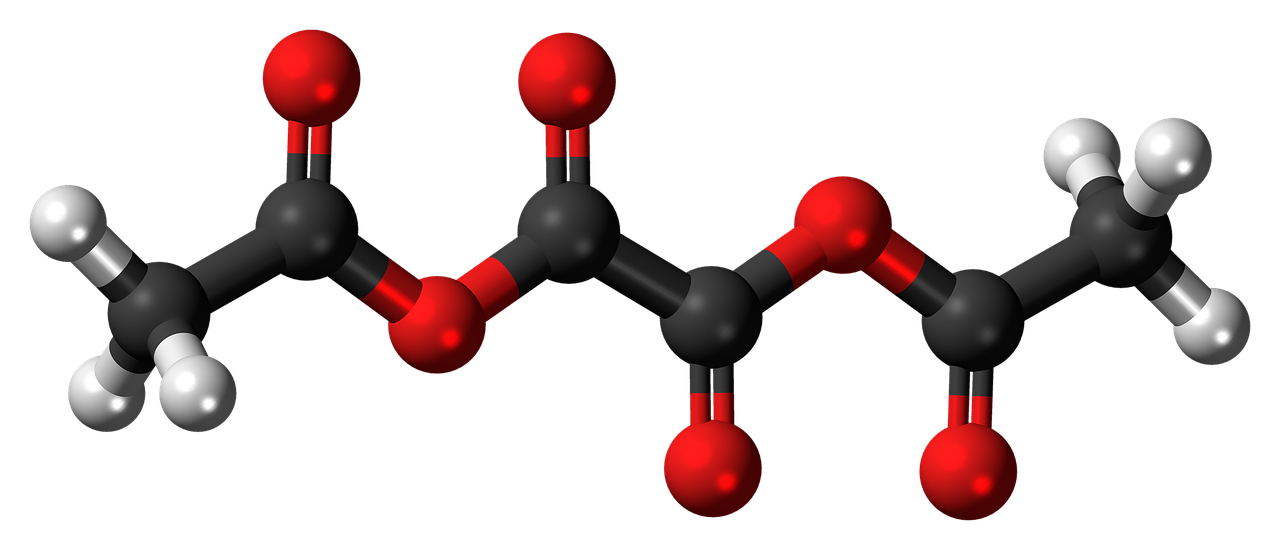Have you ever thought about how tiny compounds in your diet can have a profound impact on your body’s energy production? You might be surprised to learn that something as seemingly innocuous as oxalates can play a significant role in mitochondrial function.
Understanding Oxalates
Before we can get into the nitty-gritty of how oxalates affect your body, let’s take a moment to understand what oxalates are. Oxalates are organic compounds found in various foods, and they play a role in certain metabolic processes. These compounds are known for binding with calcium, which can lead to the formation of kidney stones in some individuals.
What Foods Are High in Oxalates?
If you’re curious about where oxalates come from, take a look at these common foods:
| Food | Oxalate Content (mg per 100g) |
|---|---|
| Spinach | 970 |
| Rhubarb | 860 |
| Beet Greens | 800 |
| Almonds | 475 |
| Sweet Potatoes | 100 |
| Tofu | 20 |
| Black Tea | 50 |
Notice how some of your favorite healthy foods might be on this list? While they are nutritious, consuming them in excess can be challenging for some people.
Oxalates and Your Body
Oxalates can enter your bloodstream after digestion. For those with healthy kidney function, this isn’t usually a problem, as the kidneys can excrete excess oxalates efficiently. However, for others, high levels of oxalate can lead to health issues.
In particular, you might be interested in how they impact mitochondrial function, which is critical for energy production in your body.
The Role of Mitochondria
Mitochondria are often referred to as the “powerhouses” of your cells, and for a good reason. They convert the nutrients from the foods you eat into energy through a process called oxidative phosphorylation. This energy fuels every activity—from your most intense workouts to the simple act of breathing.
How Mitochondrial Function Works
To understand how mitochondrial function is impacted by nutritional components like oxalates, it’s crucial to grasp the basics of how these organelles work. Here’s a brief breakdown:
- Energy Production: Mitochondria produce adenosine triphosphate (ATP), which is the energy currency of your cells.
- Regulation of Metabolism: They help regulate metabolic pathways, ensuring your body efficiently uses and stores energy.
- Apoptosis: Mitochondria also play a role in programmed cell death, which is vital for maintaining healthy tissue and preventing diseases like cancer.
Mitochondria and Oxidative Stress
Mitochondria are also significant players in handling oxidative stress. When they produce energy, they generate reactive oxygen species (ROS) as byproducts. In moderation, ROS can act as signaling molecules for cellular processes. However, excess ROS can lead to mitochondrial dysfunction, which is linked to various health issues, including aging and chronic diseases.

How Oxalates Interact with Mitochondria
Given the importance of mitochondria in your body’s functioning, you may wonder how oxalates affect these organelles.
Direct Effects on Energy Production
Research has suggested that oxalates can interfere with mitochondrial function in a few significant ways:
-
Calcium Binding: Since oxalates readily bind with calcium, they can disrupt the calcium balance within cells. Calcium ions are vital for mitochondrial functions, including ATP production. When oxalates bind to calcium, it reduces the available free calcium needed for energy production.
-
Oxidative Stress: High levels of oxalates can lead to increased oxidative stress within cells, which may lead to mitochondrial dysfunction. This can result in decreased ATP production and increased cell damage.
-
Inhibition of Enzymatic Activity: Oxalates may inhibit the activity of specific enzymes involved in the mitochondrial energy production process, dampening your body’s ability to generate energy efficiently.
Indirect Effects on Metabolism
In addition to direct interactions with mitochondria, oxalates can affect overall metabolism. A high-oxalate diet may lead to imbalances in mineral absorption, particularly calcium, magnesium, and potassium. This can have detrimental effects on numerous biological processes, further influencing mitochondrial health indirectly.
Symptoms of Mitochondrial Dysfunction
With mitochondria’s crucial role in energy production, it’s vital to recognize the signs and symptoms of mitochondrial dysfunction, which might include:
- Fatigue: Feeling unusually tired or lacking energy.
- Muscle Weakness: Difficulty in performing everyday tasks due to muscle fatigue.
- Neurological Issues: Problems such as memory loss, difficulties with coordination, or mood swings.
- Metabolic Disorders: Conditions like insulin resistance or obesity may arise.
Connecting Symptoms to Oxalate Intake
If you find yourself experiencing these symptoms, it’s worth assessing your diet. Are you consuming high-oxalate foods regularly? While it’s essential to keep a varied and nutritious diet, moderation becomes key when certain foods may be harmful to your mitochondrial function.

Managing Dietary Oxalates
If you suspect that oxalates may be contributing to your health problems, you might wonder how to manage this. Here are some practical steps you can take to address high oxalate intake while still enjoying a varied diet.
Identifying High-Oxalate Foods
Understanding which foods are high in oxalates is the first step. The food table earlier provided a helpful reference. Reducing these foods in your diet, particularly if you struggle with kidney stones or other related issues, can have a positive impact on your well-being.
Incorporating Low-Oxalate Alternatives
It’s essential to maintain a balanced diet while reducing oxalate intake. Here are some low-oxalate alternatives you can consider:
| Low-Oxalate Foods | Example Choices |
|---|---|
| Vegetables | Broccoli, cauliflower, zucchini |
| Fruits | Bananas, grapes, melons |
| Grains | Rice, quinoa, oats |
| Proteins | Eggs, poultry, fish |
| Dairy | Milk, cheese, yogurt |
Increasing Calcium Intake
Increasing your calcium intake can also be beneficial since calcium can mitigate the absorption of dietary oxalates. Consider incorporating more low-oxalate dairy foods, leafy greens high in calcium (like kale), or fortified foods into your meals to improve your calcium levels without significantly increasing oxalate intake.
The Gut Microbiome’s Role
You might not realize it, but your gut microbiome is an essential player in oxalate metabolism.
How Gut Bacteria Affect Oxalate
Certain gut bacteria possess the ability to degrade oxalates, helping to lower their levels in the body. If you’re consuming a high-oxalate diet, the health and population of these beneficial bacteria in your gut can influence your overall oxalate processing.
-
Supporting Gut Health: Incorporating probiotics and prebiotics can help cultivate a robust gut microbiome. Foods high in dietary fiber, such as whole grains and legumes, can support these beneficial bacteria.
-
Fermented Foods: Consuming fermented foods like yogurt or kimchi can also introduce helpful bacteria into your system, potentially aiding in the metabolism of oxalates.

Mitochondrial Support Through Nutrition
Beyond addressing oxalate concerns, several other nutrients play crucial roles in supporting mitochondrial function.
Key Nutrients for Mitochondrial Health
- Coenzyme Q10 (CoQ10): This antioxidant is vital for ATP production and can help support energy metabolism.
- B Vitamins: Particularly B1, B2, B3, and B12, these vitamins are essential for various energy-producing pathways within mitochondria.
- Magnesium: Important for ATP production and calcium balance, magnesium can help protect mitochondrial function.
- Omega-3 Fatty Acids: These can improve mitochondrial efficiency and aid in reducing inflammation.
Creating a Mitochondrial-Friendly Diet
Eating a balanced diet rich in these critical nutrients can significantly enhance your mitochondrial health. Consider focusing on the following food groups:
| Food Groups | Examples |
|---|---|
| Healthy Fats | Avocado, fatty fish, nuts |
| Whole Grains | Quinoa, brown rice |
| Leafy Greens | Spinach, kale |
| High-Quality Proteins | Chicken, beans, legumes |
| Fruits | Blueberries, oranges |
Conclusion
Considering how oxalates affect mitochondrial function may shed light on various health issues you experience. By understanding the balance of your dietary choices, particularly with high-oxalate foods, you can make more informed decisions to support your energy production and overall well-being.
Making small dietary changes and focusing on supporting mitochondrial health can lead to significant improvements in your energy levels and your quality of life. You’re in control of your health; taking the time to minimize oxalate intake and enhance your nutrient sources can pay off exponentially.


